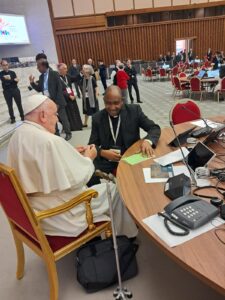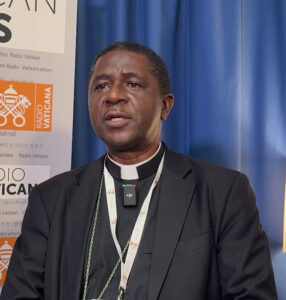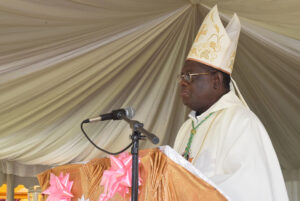KENYA: Leadership of AMECEA Catholic Universities and Colleges Urged To Engender Their Institutions
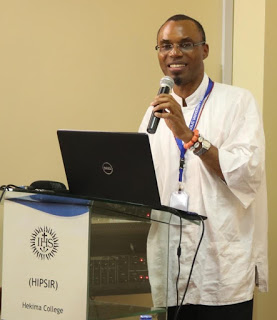
Rev. Dr. Emmanuel Orobator, SJ, Chairman Hekima University College Board of Trustees
Rev. Dr. Emmanuel Orobator, SJ Chairman of Hekima University College Board of Trustees says that gender imbalance in Catholic Higher Education institutions particularly in Africa is strong and glaring and therefore there is need to enhance gender equity and diversity in Catholic Institutions of higher learning especially in leadership positions.
Speaking at the beginning of 2019 Academic Conference of AMECEA Universities and Colleges hosted by Hekima University College in Nairobi, Kenya from 19th-22nd November, Fr. Dr. Orobator who is also President of Jesuit Conference of Africa and Madagascar (JCAM) said that there is need to engender cultural and institutional change.
“Gender equity and diversity are a catalyst for broadening a range of ideas and stimulating innovation. Conversely lack of gender equity and diversity carries a huge cost in the form of waste of expertise and investment, loss of the rights and opportunities for women and diverse groups and a loss for institutions and society of their creativity, productivity and inspirations, Fr. Orobator explained.
Fr. Orobator’s sentiments are echoed by Dr. Edel Beatrice Churu, Deputy Principal Academics at Tangaza University College in Nairobi who said that the issue is rather a hot subject internationally because women are not included enough in leadership positions in all sectors.
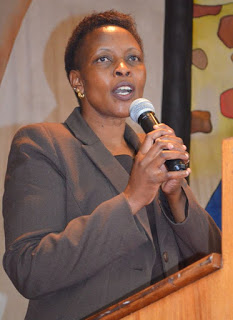
Academic, Tangaza University College
(Image Courtesy)
“In higher education across the world, we don’t have enough women in leadership for all manners of reasons and I think the situation is worse in Africa generally and even without the benefit of actual research, I never-the-less could make a guess that it is actually worse in Catholic Higher Education Institutions because of the tendency to prefer clerics in various leadership positions,” Dr. Churu explained said in an interview with AMECEA Online News.
She indicated that it was an important approach that Fr. Orobator proposed to of not just inclusiveness of women for the sake of it but also to realize that there is a resource in women being participants in higher education leadership; something that is currently missing out on and which could be develop better to benefit the institutions and society as a ripple effect.
She also pointed out that a lot of women are qualified and are able to participate in leadership yet cannot talk of really being close to equal or at a level of equity and therefore that opportunity continues to be lost.
“I wouldn’t however be advocating for giving women positions for which they are not qualified, because that does not help either the women or the institution or the image of women leadership. Already many women in leadership in all sectors in the society are forced to measure up against male images of leaders, which often puts them in a disadvantaged positions or forces them to act male and lose the benefits of being women in leadership,” she remarked adding that there is need to “keep on interrogating ourselves as institutions that we are preparing a continuity of women in leadership and giving them adequate support.”
Dr. Churu explained that at Tangaza University College, they have a group of doctoral women; women with doctorates as well as those aspiring to get doctorate. They meet every so often to discuss and assist each other and one of their big objectives is to prepare the woman for leadership in higher education institutions.
“I hope that these women can find leadership positions because they are committed to Catholic higher education, they value it, I hope they can find windows in which to serve in Catholic higher education institutions as well as others. I believe it is a soul searching conversation and we shouldn’t let the ball drop now that somebody has had the courage to raise it in the midst of Catholic higher education institutions. In a friendly way let us keep that conversation going for the good of the society,” she implored.
By Pamela Adinda, AMECEA Online News
